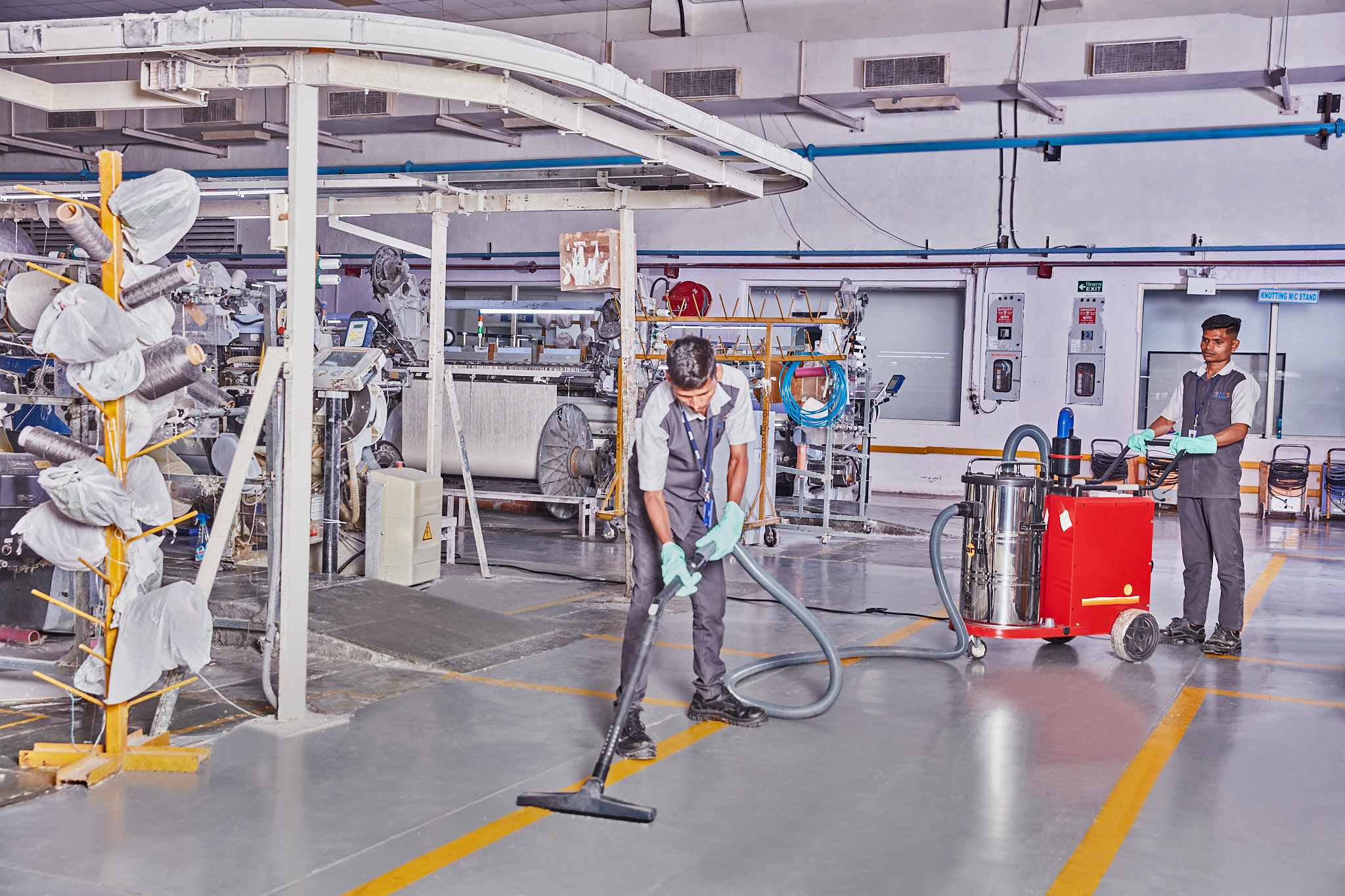Facility Management (FM) has undergone significant transformation over the past decade, driven by advancements in technology, evolving client expectations, and the need for sustainability. As we look ahead, the next ten years promise even more groundbreaking changes that will redefine how spaces are managed, maintained, and optimized. From smart technologies to integrated services, Facility Management is poised to become more dynamic, efficient, and essential than ever.
Let’s explore the key trends and innovations that will shape the evolution of Facility Management in the coming decade.
1. Integration of Smart Technologies
The integration of smart technologies, such as IoT (Internet of Things), Artificial Intelligence (AI), and data analytics, will be at the forefront of Facility Management’s evolution.
- IoT in FM: IoT-enabled devices will allow real-time monitoring of critical systems like HVAC, lighting, and security. These systems will detect inefficiencies and potential failures before they escalate, minimizing downtime and reducing costs.
- AI and Automation: AI-powered tools will optimize processes such as energy management, predictive maintenance, and space utilization. Automated workflows will reduce manual intervention, improving operational efficiency.
- Data-Driven Insights: Facility Management companies will rely on data analytics to make informed decisions, offering clients actionable insights to enhance performance and reduce waste.
SILA, as one of the top facility management companies in India, is already leveraging these technologies to deliver seamless services to its clients. Our proprietary platform, SILA Connect, is a prime example of how technology is driving efficiency in Facility Management.
2. The Rise of Integrated Facility Management Services
Integrated Facility Management (IFM) services will continue to gain prominence as businesses seek to consolidate their operations under a single provider. This approach eliminates the complexities of managing multiple vendors and ensures better coordination, cost efficiency, and service consistency.
- Holistic Solutions: IFM providers will offer end-to-end solutions, from housekeeping and security to energy management and sustainability initiatives.
- Client Dashboards: Personalized client dashboards will provide real-time updates on site operations, enabling transparency and better decision-making.
In cities like Bangalore, where the demand for efficient Facility Management services is rapidly increasing, IFM is becoming the preferred choice for residential complexes, corporate offices, and commercial spaces. SILA’s expertise in integrated facility management services makes it a trusted partner for businesses aiming to streamline operations and achieve long-term success.
3. Sustainability Takes Center Stage
As environmental concerns grow, sustainability will be a major focus in the next decade of Facility Management.
- Energy Efficiency: Facilities will adopt energy-efficient solutions, such as LED lighting, renewable energy sources, and smart energy management systems, to reduce their carbon footprint.
- Waste Management: Advanced recycling programs and eco-friendly waste disposal methods will become standard practices in Facility Management.
- Green Certifications: Facility Management companies will play a crucial role in helping clients achieve green certifications for their buildings, enhancing their market value and environmental impact.
SILA is committed to sustainability and actively incorporates eco-friendly practices into its operations, ensuring that its clients contribute to a greener future.
4. Enhanced Employee and Resident Experiences
The focus of Facility Management is shifting from simply maintaining buildings to enhancing the experiences of those who use them.
- Customizable Services: Facilities will offer personalized services tailored to the needs of employees, residents, and visitors, such as flexible workspace designs and enhanced amenities.
- Health and Well-Being: Post-pandemic, there will be an increased emphasis on indoor air quality, hygiene, and wellness initiatives, making Facility Management a key player in ensuring occupant health.
Top facilities management companies, like SILA, are already prioritizing these aspects to create environments where people thrive.
5. The Emergence of Robotics in Facility Management
Robotics will play an increasingly important role in automating repetitive tasks in Facility Management.
- Cleaning Robots: Robotic cleaning machines will become more prevalent in maintaining large spaces such as malls, airports, and corporate campuses.
- Surveillance and Security: Robotic systems equipped with AI will enhance security measures, reducing the reliance on human personnel for monitoring and surveillance.
These innovations will allow Facility Management companies to allocate human resources to more strategic and value-driven tasks, improving overall service delivery.
6. Collaboration with Smart Cities
Facility Management will align closely with the development of smart cities, integrating its services with urban infrastructure.
- Smart Utilities: FM providers will help manage urban utilities like water, waste, and energy, ensuring sustainable city operations.
- Seamless Connectivity: Smart cities will leverage FM expertise to create connected environments where infrastructure and technology work in harmony.
Conclusion
The next decade will bring transformative changes to the Facility Management industry, making it more dynamic, technology-driven, and sustainable. As one of the top facility management companies in India, SILA is at the forefront of this evolution. By embracing cutting-edge technologies, prioritizing sustainability, and offering integrated solutions, we are redefining how facilities are managed and maintained.
Whether you’re looking for facility management companies in Bangalore or seeking comprehensive IFM services across India, SILA is committed to delivering innovative and tailored solutions that meet the demands of the future. Together, let’s shape the next chapter of Facility Management, ensuring that facilities not only operate efficiently but also create positive experiences for all.
SILA adopts a tech-driven approach, utilizing Robotics and IoT, Automated Compliance Management, and our proprietary technology (SILA Connect) to efficiently manage properties across India. SILA also provides facility services management and real estate consulting for clients across industries. As pioneers in technology within the facility management sector, SILA stands out as one of the best Facility management companies redefining the industry.
Industries We serve –
Commercial Offices & Buildings | Manufacturing & Heavy Industrial Facilities | Residential Complexes & Townships | Hotels & Campuses | Airports & Malls | IT Parks & Data Centers | Warehousing & Logistics Parks | Banks & Retail
Present in 125 cities –
Ahmedabad | Baroda | Bengaluru | Chennai | Bhubaneswar | Delhi | Gurugram | Noida | Kolkata | Hyderabad | Kochi | Mumbai | Pune & more
Get a free quote today, to reduce your facility management cost.
Also Read: A Day in the Life of SILA’s Residential Facility Management Team
FAQs
1.What is the FM process?
The Facility Management process involves a systematic approach to managing facilities to optimize operations, maintain efficiency, and enhance the overall working environment. Key aspects of the FM process include:
- Strategic Planning: Developing long-term plans to manage and improve facilities.
- Coordination and Execution: Organizing and carrying out tasks related to the physical assets within an organization.
- Facility Maintenance: Ensuring all building systems and infrastructure are properly maintained.
- Space Utilization: Optimizing the use of available space to meet organizational needs.
- Sustainability: Implementing practices to reduce environmental impact and promote energy efficiency.
- Safety and Security: Maintaining a safe and secure environment for all occupants.
- Technology Integration: Utilizing the latest technologies to enhance facility operations.
- Cost Management: Managing expenses to maximize the value and efficiency of facility operations.
2. What are the 3 key concepts of facility management?
The 3 key concepts of FM involve strategic planning, sustainable practices, and technology integration.
- Strategic planning develops long-term goals, aligns facility objectives with organizational strategies, and optimizes resources. It ensures proactive decision-making and cost-effectiveness.
- Sustainable practices minimize environmental impact and reduce energy consumption through green building practices, renewable energy, recycling, and waste reduction.
- Technology integration enables data-driven decision-making and improves operational efficiency using systems like CMMS, IWMS, BIM, and IoT. This streamlines processes and automates tasks for optimal facility performance.
3. What is the basic facilities management?
Basic facilities management is essential for the smooth operation of a building and its services. It encompasses a range of fundamental tasks, including routine maintenance, cleaning, security, and ensuring compliance with health and safety regulations. By proactively managing these aspects, facilities managers can help ensure the efficient functioning of the facility and provide a safe and comfortable environment for occupants.
4. What are the 4 P's of facility management?
The 4 P’s of facility management are:
- Planning involves setting strategic objectives, developing budgets, and creating long-term goals for the management of facilities.
- Processes refer to the operational procedures and workflows that ensure the efficient and effective functioning of facilities.
- People focus on the human resources involved in facility management, including staff training, development, and engagement.
- Place encompasses the physical environment and infrastructure of facilities, including maintenance, safety, and sustainability initiatives.
About SILA -
SILA – A Real Estate platform driven by an entrepreneurial spirit.
Our businesses include Real Estate Services which offer Facility Management, Contracting Solutions and Real Estate Advisory. Our other business is Real Estate Development. We have a diverse client base in various sectors which include large Corporates, Real Estate Funds, Landowners and Developers.
Over the last decade, SILA has scaled efficiently, managing over 150 million square feet of assets, with over 22,000 employees pan India. The platform is backed by Norwest Venture Partners and Samara Capital Group in our Real Estate Services and Development arms, respectively.
SILA is one of the best property management companies in Bangalore, Mumbai, Delhi, Chennai, Hyderabad, Pune & more.
SILA is among the top facility management companies in India, offering comprehensive facility services management in India. As a leading facility services management company, SILA provides tailored FM solutions, including housekeeping services in Bangalore. Leveraging our expertise, we ensure seamless property management for clients nationwide. Whether you require housekeeping agency support or specialized facility management solutions, SILA delivers excellence in every aspect of your Housekeeping services in India, property’s upkeep and maintenance.
About Author -

Aniket Sheth
The insightful content in this blog is curated by Aniket Sheth, our esteemed Senior Vice President of Operations. With an impressive professional journey spanning over 13 years, Aniket has held key positions at prestigious brands, showcasing his exceptional leadership skills.
Aniket’s educational background is marked by an MBA from Cornell University, which laid the foundation for his successful career. He began his professional journey at EY in New York, contributing significantly to enhancing and implementing engagements for Fortune 500 companies.
Aniket’s strategic acumen, proficiency in asset management, and forward-thinking innovation have been instrumental in helping companies streamline their operations and achieve substantial cost reductions. His wealth of experience brings a unique perspective to the world of facilities management, making his insights invaluable for businesses seeking operational excellence.


